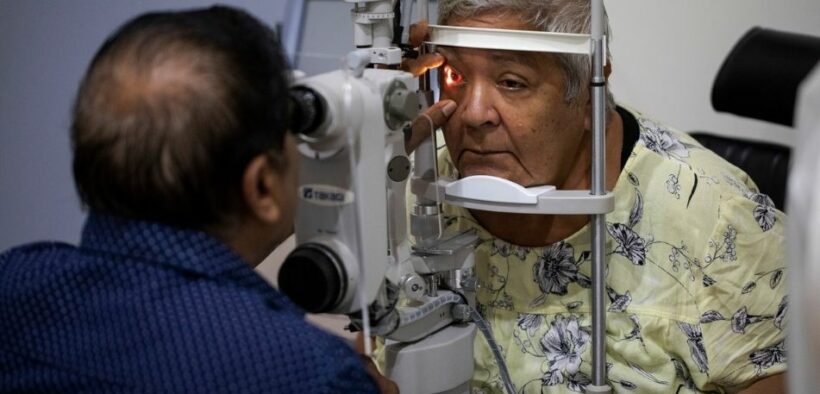#LoveYourEyes: Australians urged to get eye test during World Sight Day
Share

- Author and science communicator Dr Karl Kruszelnicki has joined The Fred Hollows Foundation in urging Australians to book an eye test during World Sight Day
- 1 in 2 Australians aged 18-24 say their eyes or vision have been negatively affected by more screen time during the COVID-19 pandemic.
- 37 per cent of Australians aged 18-24 have no idea how often they should get their eyes checked (the recommended frequency is once every 2 years).
- 1 in 3 young Australians have either had their last eye check more than four years ago or have never had their eyes checked.
- The most common reason young Australians cite for not getting their eyes checked are that they think their eyes are fine and eye health is not a pressing concern.
Author, science communicator and ambassador to The Fred Hollows Foundation Dr Karl Kruszelnicki is urging Australians to book an eye test this World Sight Day, as many people in NSW emerge from lockdowns.
Dr Karl said he encouraged young Australians, in particular, to take up the pledge. “Eyes are a crucial part of the human body and they work very, very hard without people realising,” he said.
“Your eyes contain millions of receptors which turn light into electricity and one million nerves which send information to your brain.
“Eye conditions develop over time and the only way to check that the millions of receptors and nerves are healthy is to get an eye test.
“I encourage all Aussies, particularly younger people who might take their eyesight for granted, to #loveyoureyes and book an eye test.”
The Foundation’s CEO, Ian Wishart, said the reminder comes after widespread lockdowns in 2020 and 2021 disrupted routines and shifted people’s priorities.
“Your eyes are like any other part of your body. You need to nurture them if you want them to stay healthy,” Wishart said.
“Blindness and vision loss aren’t just an issue for older people. They affect people at all stages of their lives and The Foundation treats patients of all ages.
“With all the screen time that people get from a very young age, we also expect that people will be needing eye treatment earlier and earlier in their lives.
“There’s a lot that younger people can do to protect their eye health: get regular eye checks, limit screen time, protect your eyes during sport and eat foods with eye-friendly nutrients – such as Vitamin A, beta-carotene and zinc.
“I urge young people to get their eyes checked at least once every two years, or more frequently if there’s an issue.”
The Fred Hollows Foundation conducted a survey of a nationally representative sample of Australians which examined people’s knowledge and behaviour when it comes to their eye health, including the impacts of COVID-19.
It found that more than one-third of young Australians (37 per cent) have no idea how often they should get their eyes checked, in contrast to 24 per cent of the general population.
The pandemic has also delayed eye check-ups for 28 per cent of people aged 18 to 24 and 31 per cent of people aged 25 to 34, mainly because of lockdowns.
Of those Australians who have had their eye checks delayed during the pandemic, 31 per cent of people aged 18 to 24 cited not having enough time as the reason, higher than all other age groups.
The Fred Hollows Foundation has screened about 160,000 people worldwide in the month leading up to World Sight Day.
Lourdes Antenor is an experienced writer who specialises in the not-for-profit sector and its affiliations. She is the content producer for Third Sector News, an online knowledge-based platform for and about the Australian NFP sector.



















